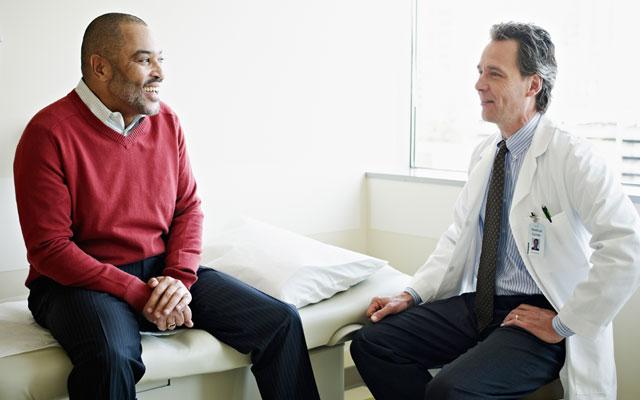
Encontrar el cuidado correcto
Como cuidador, es probable que usted participe en la atención de la salud de su ser querido, incluidas las visitas a médicos y otros proveedores. If your loved one needs help locating a doctor or other provider, look for one that is part of their BCBSRI health plan by contacting BCBSRI Customer Service.
Estos consejos pueden ayudar a su ser querido a obtener la atención que necesita y merece.
Comience con un proveedor de atención primaria.
Tener un proveedor de atención primaria (PCP, por sus siglas en inglés) puede permitirle a su ser querido (y a usted) entablar una relación de confianza con un profesional médico en el transcurso del tiempo, alguien que sea su principal proveedor de atención de la salud.
Un PCP puede ser un médico de familia, un geriatra (para adultos mayores), un pediatra (para niños) o un internista. Algunos PCP son enfermeros especializados, es decir, enfermeros que pueden brindar una gran variedad de servicios de atención de salud y recetar medicamentos.
Un PCP también cuida a su ser querido al hacer lo siguiente:
- Llevar a cabo controles regulares
- Brindar atención de enfermedades, la mayoría de las afecciones crónicas y lesiones menores
- Derivarlo a especialistas cuando sea necesario
Los PCP podrían tratar los problemas ellos mismos, en lugar de enviar a su ser querido a un especialista. Pueden ahorrar tiempo y dinero.
Con algunos planes de salud de BCBSRI, hay un copago más bajo (o incluso de $0) por consultar a un PCP que forme parte de un hogar de salud centrado en el paciente. En este tipo de clínica, un PCP dirige al equipo que atiende a su ser querido, y que puede incluir a especialistas, enfermeros, nutricionistas, trabajadores sociales y terapeutas.
Consulte a especialistas según sea necesario.
Un especialista es un médico que trata determinadas enfermedades o partes del cuerpo, por ejemplo, un cardiólogo (médico del corazón) o un oncólogo (médico del cáncer). Al hablar con un especialista, es importante preguntar lo siguiente:
- ¿Cuál es mi diagnóstico?
- ¿Qué tratamiento recomienda? ¿El tratamiento tiene algún riesgo?
- ¿Hay otros tratamientos que también podrían servir para tratar la afección que tengo?
Si el PCP le recomienda consultar a un especialista, pídale que le dé el nombre de uno o más especialistas que estén dentro de la red del plan de salud de su ser querido. Algunos planes requieren la derivación de un PCP; así que asegúrese de verificar eso primero. Para garantizar que su ser querido reciba la mejor atención, el PCP y el especialista deben compartir los registros médicos, los resultados de las pruebas y las notas de las citas.
Obtenga atención segura e inclusiva en una Zona segura de BCBSRI.
La certificación de Zona segura de BCBSRI identifica a un centro de atención de salud que brinda atención segura, afirmativa e inclusiva a la comunidad LGBTQ. Para obtener esa certificación, los centros deben contar con lo siguiente:
- Capacitación del personal específica para la atención de personas lesbianas, gais, bisexuales y transgénero
- Protección para los pacientes y el personal contra la discriminación en función de la identidad o la expresión del género
- Baños de género neutro
- Formularios y procedimientos inclusivos
- Un compromiso público de prestar servicio y conectarse con la comunidad LGBTQ
Las Zonas seguras certificadas incluyen consultorios pediátricos, profesionales de salud mental, dentistas y centros de vida asistida. Encuentre un proveedor con Zona segura certificada.
Obtenga apoyo adicional, sin costo adicional.
Si su ser querido tiene un plan de salud de BCBSRI, nuestro equipo de Coordinación de la Atención puede trabajar con él* y sus proveedores para encaminarlo hacia una vida más saludable. No se necesita un referido. Nuestro equipo de enfermeros registrados, nutricionistas registrados, especialistas en salud conductual y farmacéuticos colabora para brindarle a su ser querido la atención que él necesita. Nuestro equipo tiene experiencia en trabajar con cuidadores.
Para empezar, llame al 1-844-563-0892 (TTY/TTD: 711) o envíe un correo electrónico a care@bcbsri.org.

